PREVIOUS
The Election commission of India and Elections History - Part 8
May 18 , 2024
337 days
1880
0
(இதன் தமிழ் வடிவத்திற்கு இங்கே சொடுக்கவும்)
6th Lok Sabha (1977 / 1980)
- Winning party: Janata Party
- Prime Minister: Morarji Desai
- Term in office: March 24, 1977 - July 29, 1979
- Leader of the Opposition: Y.B. Chavan of the Indian National Congress.
- With the Janata Party forming the government, Congress moved to the opposition.
- Speaker(s) of the House: K. S. Hegde
- Term: July 21, 1977 - January 21, 1980
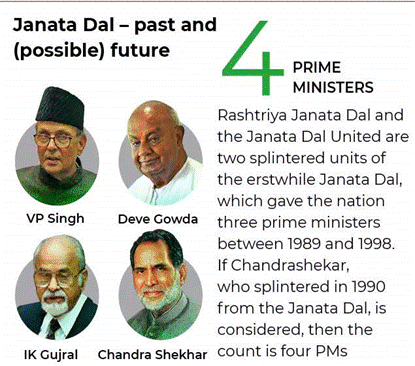
Overview:
- The Governance focused on restoring civil liberties and undoing repressive measures of the previous regime.
- Janata Party faced internal conflicts, leading to its dissolution and early elections in 1980.
Election Outcome:
- Janata Party won 295 seats, followed by INC (154) and CPM (22).
- Morarji Desai became India’s first non-Congress Prime Minister at the age of 81.
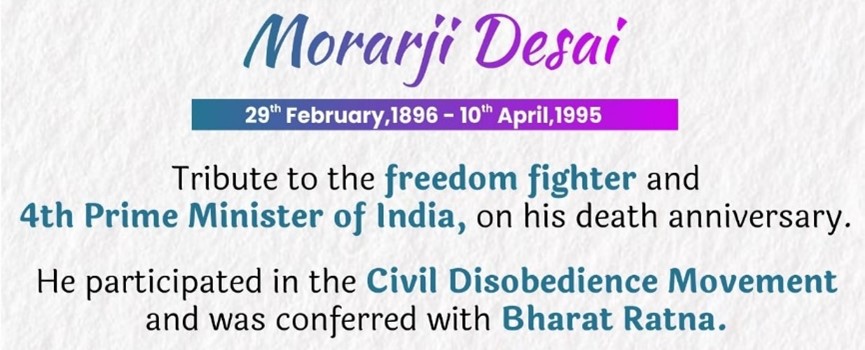
Legislative Agenda:
- The Sixth Lok Sabha passed 130 enactments, with 53 related to financial subjects.
- Discussions covered deteriorating law and order, China’s invasion of Vietnam, price rise, and media misuse during the Emergency.
Challenges and Fissures:
- Internal conflicts emerged due to Desai’s leadership, RSS links of erstwhile Jan Sangh members, and failure to investigate Emergency excesses.
- Ten State Governments were dismissed, triggering repolls.
Political Shifts:
- Charan Singh served briefly as Prime Minister, but his government didn't last.
- Charan Singh was the only prime minister who never faced a parliament session as pm of India.
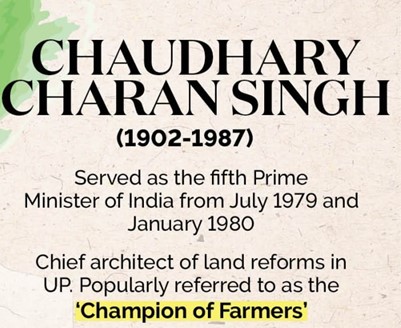
Aftermath:
- Disillusioned voters ousted Congress and elected Janata Party.
- The new government was wracked by internal conflicts.
- This instability led to its dissolution and early elections in 1980.
7th Lok Sabha (1980 / 1984)
- Winning party: Indian National Congress (I)
- Prime Minister: Indira Gandhi
- Term in office: January 14, 1980 - October 31, 1984
- Leader of the Opposition: No significant LoP as Congress enjoyed majority
- Speaker(s) of the House: Balram Jakhar
- Term: January 22, 1980 - January 15, 1985
Overview:
- Congress made a comeback after the Janata Party struggled with internal differences.
Election:
- Shortest elections held over four days in January 1980.
- 542 constituencies - 25 States and six Union Territories.
- Voter turnout fell by 3.57%, highest in Lakshadweep and lowest in Orissa.
- 49 elected Muslim members, highest in Lok Sabha history.
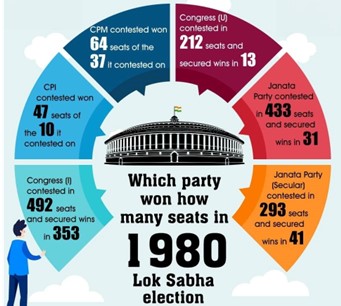
Election Outcome:
- Indian National Congress claimed 353 seats, Janata Party (S) won 41 seats, Communist Party of India (Marxist) with 37 seats.
- Madras South (Tamil Nadu) recorded the maximum votes (60.34%) for INC.
Speaker of the House:
- Balram Jakhar served as Speaker from January 1980 to 1985.
- He was the longest-serving Speaker, serving for two consecutive terms.
Challenges:
- Inherited a struggling economy with 20% inflation and collapsing industrial growth.
- Faced rising crime, caste and communal tensions, and labor unrest, especially in Assam.
- Faced challenges in dealing with serious foreign policy issues, including the Russia-Afghanistan war.
- Defence Minister Narasimha Rao's invitation to ASEAN was withdrawn.
- This happened after India recognized the new government of Kampuchea.
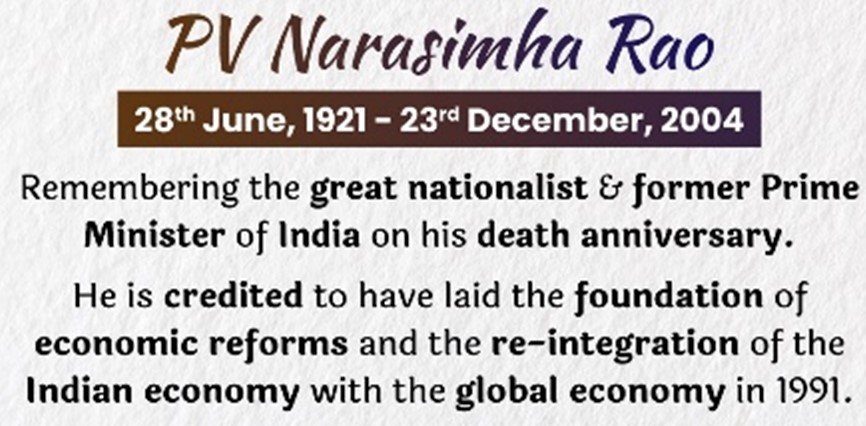
Punjab Crisis:
- Punjab faced separatist movement demanding autonomy and regions.
- Operation Blue Star launched after negotiations with militants failed, leading to attacks on Golden Temple and other religious sites.
- Indira Gandhi assassinated on October 31, 1984, by her Sikh bodyguards.
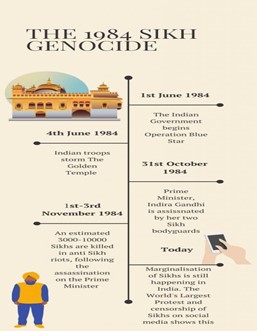
Aftermath:
- Rajiv Gandhi elected as India’s seventh Prime Minister.
- Mr. Rajiv Gandhi (40) holds the distinction of being India’s first youngest Prime Minister.
- Congress's historical role in the freedom struggle, Jawaharlal Nehru’s appeal, and a growing need for stability informed the political landscape.
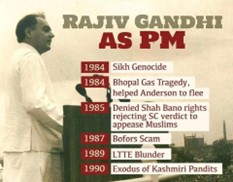
8th Lok Sabha (1984 / 1989)
- Winning party: Indian National Congress (I)
- Prime Minister: Rajiv Gandhi
- Term in office: December 31, 1984 - December 2, 1989
- Leader of the Opposition: H.N. Bahuguna of the Indian National Congress (U)
- Speaker(s) of the House: Balram Jakhar
- Term: January 22, 1980 - December 18, 1989
Overview:
- Congress won a historic political mandate under Rajiv Gandhi, registering its best-ever performance in independent India.
- Debut of Bharatiya Janata Party (BJP) and Telugu Desam Party (TDP) reshaped the political landscape.
- Social climate was marked by Indira Gandhi’s assassination, anti-Sikh sentiment, communal disharmony, and coalition fragility.
Election Outcome:
- INC won a record 414 seats, followed by TDP (30) and CPM (22 seats).
- Strong performance of INC in Southern States, obtaining 48.12% vote from regions in Tamil Nadu.
Government Focus:
- Emphasis on autonomy for public enterprises and initiatives in technology and communication.
- Continuation of Nehruvian legacy in developing science institutions.
- Economic reforms initiated by Finance Minister V.P. Singh, including tax raids and foreign investment allowances.
- Signing of historical Intermediate Range Nuclear Forces (INF) treaty and Indo-Sri Lanka Accord.
- The government faced struggles to resolve conflicts in Punjab and Assam, particularly during the anti-Sikh riots following Indira Gandhi’s assassination.
Bofors Scandal:
- Scandal coloured the last two years of Rajiv Gandhi’s tenure, sullying his promising mandate.
Parliamentary Unrest:
- Thakkar Commission’s report on Gandhi’s assassination stirred parliamentary unrest, leading to the suspension of 63 MPs, a new record at the time.
Dissolution and Elections:
- Lok Sabha dissolved, and General Elections held in November 1989.
Legacy:
- Rajiv Gandhi fuelled Congress’s resurgence, while N.T. Rama Rao redefined Andhra’s politics.
- Communal disharmony, anti-Sikh riots, and Bofors scam defined the social climate of the era.
9th Lok Sabha (1989 / 1991)
- Winning party: Janata Dal led National Front (coalition)
- Prime Minister(s): V.P. Singh and Chandra Shekhar
- Term(s) in office: Mr. Singh (December 2, 1989 - November 10, 1990)
- Term(s) in office: Mr. Shekhar (November 19, 1990 - June 21, 1991)
- Leader of the Opposition: Rajiv Gandhi and L.K. Advani
- Speaker(s) of the House: Rabi Ray
- Term: December 19, 1989 - July 9, 1991
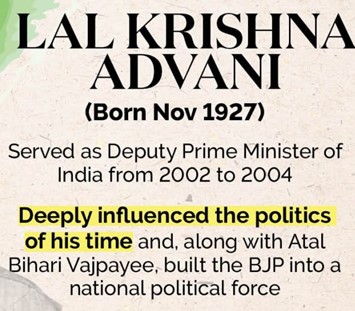
Overview:
- First time no party had a majority in the Lower House, leading to the formation of the National Front coalition government.
- Mandir and Mandal politics dominated, with unrest over caste-based reservations and the Ram Janmabhoomi movement.
- Economic instability and the Bofors scandal, along with Rajiv Gandhi’s assassination, influenced the political landscape.
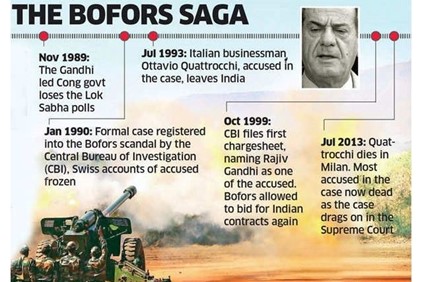
Coalition Government:
- Janata Dal’s V.P. Singh sworn in as Prime Minister, facing challenges from the outset.
- Economic instability and communal protests characterized the tenure.
Mandir and Mandal Politics:
- Singh’s government decided to implement Mandal Commission recommendations for OBC reservations, leading to protests and fragmentation of voter base.
- BJP withdrew support over the issue, leading to Singh’s resignation and the fall of the National Front Government.
- Religious upheaval over L.K. Advani’s arrest in Bihar for running the Ram Rath Yatra added to the unrest.
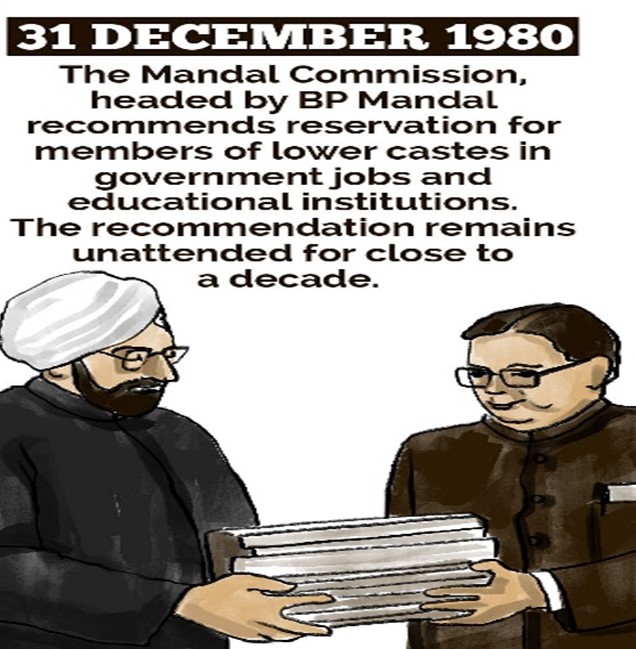
Chandra Shekhar’s Tenure:
- Chandra Shekhar replaced Singh as Prime Minister with outside support from the Indian National Congress.
- His government failed to pass the Budget amidst economic turmoil.
- He held the position for seven months, the second-shortest duration after that of Charan Singh.
Historical Significance:
- First time in history no party enjoyed a majority in the Lok Sabha.
- Mandir and Mandal politics stirred unrest across a deeply divided nation, shaping political discussions for years to come.
-------------------------------------
Leave a Reply
Your Comment is awaiting moderation.


